Don't look Mac in anger: 20 years of change for Apple
The highs and lows of the the most powerful tech company in the world
Sign up for breaking news, reviews, opinion, top tech deals, and more.
You are now subscribed
Your newsletter sign-up was successful
5. Lots of uniform, bland beige boxes
The Power Macintosh 6500 from 1997 is a good example of the era in which Apple's line-up was drab, complicated and uninspiring. It's not just how it looks that's underwhelming; even though this was the first mainstream desktop to reach 300MHz, its PowerPC 603e processor was never a strong CPU for desktop computers.
Worse, it was when Apple released essentially the same computers in a range of confusing configurations, in part thanks to the Performa initiative: Apple strove to create computers that appealed to consumers, but the differences between Performas and their equivalents was often minimal - sometimes it was just the bundled software that distinguished them.
6. The puck mouse
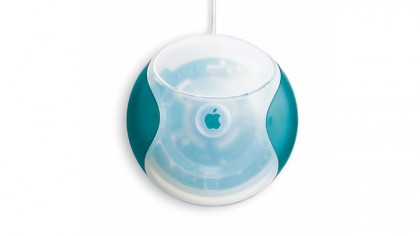
Apple is rightly lauded as being a company that gets design. Design, as Steve Jobs famously said, is not how something looks; it's how it works. It's more akin to most people's definition of engineering than they realise.
But even Apple has its missteps, and the mouse it introduced alongside the original iMac was one of the worst. Not only was the round shape uncomfortable to hold, because it was symmetrical it was too easy for it to rotate in your hand. It was such a problem that companies made adapters that clipped on to transform it into a more traditional mouse shape!
7. Easy upgrading
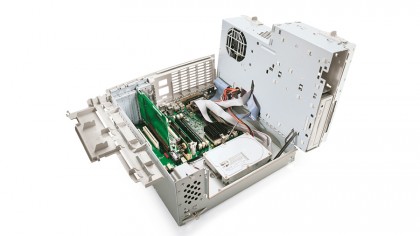
In most cases these days, we're forced to accept that the Macs and iOS devices we buy are essentially sealed systems. That's good in some ways - it allows Apple to tightly optimise the space inside its devices, and frankly, for most people the out-of-the-box experience is good enough without the need to add anything extra.
But we can't help missing case designs like this one, in which the bulky components swing up out of the way to let you access RAM, PCI slots, the hard disk and more.
8. The saviour of Apple
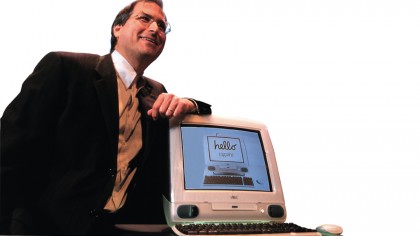
Any history of Apple has to talk about the iMac's introduction in 1998. If you're ever asked to point to one device as the single thing that turned a company around, point to the iMac.
Sign up for breaking news, reviews, opinion, top tech deals, and more.
It was introduced by original Apple co-founder Steve Jobs on his return after being kicked out by the board in 1985. It didn't just mark a return to a focused product line, it also became an example of how Apple is happy to piss people off if it thinks it's doing the right thing. Witness here the adoption of USB and the ditching of floppy drives, for example.
9. Progress can leave good stuff behind
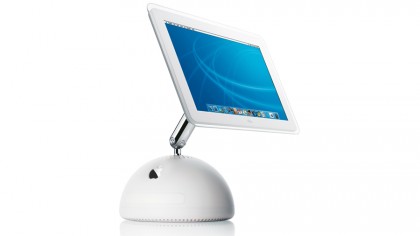
The current iMac is, of course, a beautiful and powerful thing. But for our money, nothing has equalled the charm of the iMac G4. Its rotating, pivoting, Anglepoise lamp-like neck isn't only pretty and practical - no desktop Mac before or since has made it easier to swing the display around to share funny cat videos with colleagues - because you can adjust its height (unlike modern iMacs), it's also a much better design ergonomically. We miss you, iMac G4!
10. Computing 3.0
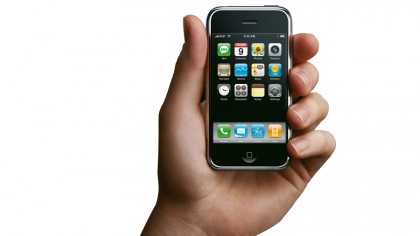
A computer used to be a person who did calculations, and then it came to mean one of the big, complex, intimidating machines that specialists could program for number-crunching.
Thanks to its mouse and graphical user interface, the original Macintosh's introduction in 1984 saw a fundamental shift to computers that the rest of us could use. And with the iPhone and iPad, now Apple's defining the conversation about the next major shift in computing: into our pockets.
11. The halo effect
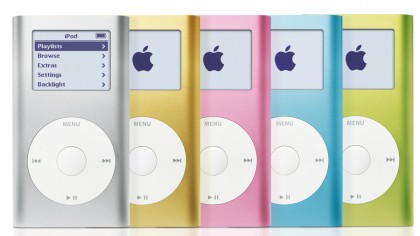
People laughed at the original iPod. It was expensive, and nobody could really see the point. Then came the iPod mini, and everyone laughed at it too; it wasn't much cheaper and had much less storage. But it was cheap enough, and soon rocketing sales meant people weren't laughing any more.
What's more, once people got an iPod, they learned how good Apple stuff is; and when they came to buy their next laptop…